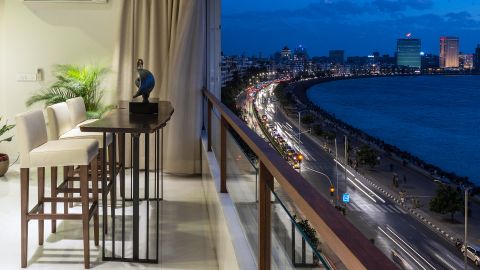Nearly 70 percent of Women want Ready-to-move homes: Anarock Survey
Indian real estate sector is witnessing a slow recovery in demand in metro cities and tier-II cities in the recent months. The improvement in real estate sector has been led by lower supply and increasing prices of real estate. A survey conducted by ANAROCK Property Consultants has found that 71 percent of women prefer ready to move homes. The findings of ANAROCK survey follow...
In Indian real estate, every day is Women’s Day now! On the journey from being part of the home buying process to driving it, today's financially strong Indian women emerged as a powerful demographic in ANAROCK's latest consumer sentiment survey published in February 2021.
Prashant Thakur, Director & Head – Research, ANAROCK Property Consultants says, “The survey reveals that many Indian women now consider housing not just the bedrock of financial security but also essential to diversify their investment portfolios. 62% of women respondents confirmed housing as their preferred asset class - even more than men. 54% of men who participated in the survey preferred real estate above the other options - stock market, fixed deposits and gold.”
Interestingly, women’s preference for real estate has risen post-COVID-19 – from 57% votes in the pre-COVID survey to 62% in the current edition.
Of the total of 3,900 survey participants, 36% of respondents were women and among these, at least 70% consider the current time as ideal for buying a home. Their main sentiment drivers - housing affordability is currently optimal, developers' offers and discounts are attractive, and home loan rates are at a 15-year low.
Most surveyed women respondents (82%) plan to buy a home for their personal use, and 18% for investment. Among men respondents, the end-use to investment ratio was 68:32.
Other notable women-centric findings:
While most women preferred properties priced within INR 90 lakh (at least 66% women homebuyers), 5% voted for ultra-luxury real estate priced >INR 2.5 Crore.
In the overall survey, the 2BHK was the most-preferred configuration - but further analysis reveals that most women preferred higher BHK-configurations. At least 46% of women favoured 3BHKs, and only 30% were scouting for 2BHKs. Interestingly, 10% were also looking for 4BHKs.
The psychological assurance of physical assets influences 31% of women homebuyers; 28% responded favourably towards the availability of cheaper home loans, and 22% will buy homes because of ongoing offers and deals by developers.
Home Purchase – Advantage Women
Indian women enjoy multiple benefits when buying homes:
Various government policies support and promote women homeownership in India. For instance, to avail homes under the government’s flagship scheme Pradhan Mantri Awas Yojna (PMAY) introduced in 2015, homes have to be mandatorily registered either in a woman’s name or with women as co-owners. This was done to empower women of the lower-income segments.
Lower stamp duty is another benefit that women enjoy while buying a property. Stamp duty charges are lower if property registration is executed in the name of a woman, although these charges vary from state to state. The exemption for women varies between 1-2% across different states. In some cases, it might even vary within a particular state, based on the classification of regions as ‘urban’ and ‘rural’. For instance, Delhi, UP, Rajasthan, Punjab and Haryana offer relaxation in stamp duty for women buyers. Punjab has a 4% difference between male and female homebuyers.
Many banks such as SBI, ICICI, HDFC, etc. offer discounted home loan rates to women as compared to men. This again varies from bank to bank, but the difference can be as much as 0.25%. The prevailing low property rates coupled with home loans rates at a 15-year low are certainly an advantage.
To avail of certain tax benefits, a woman can also become the joint owner of a property with her husband and, if she has a separate source of income, both can claim tax deductions individually.
